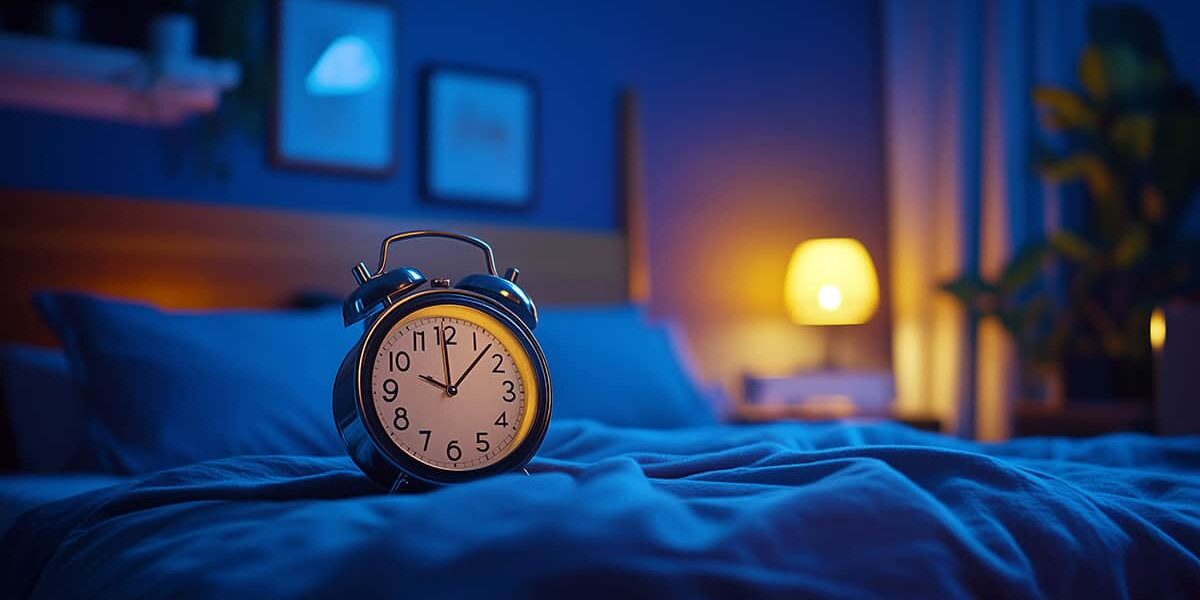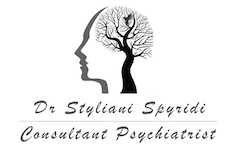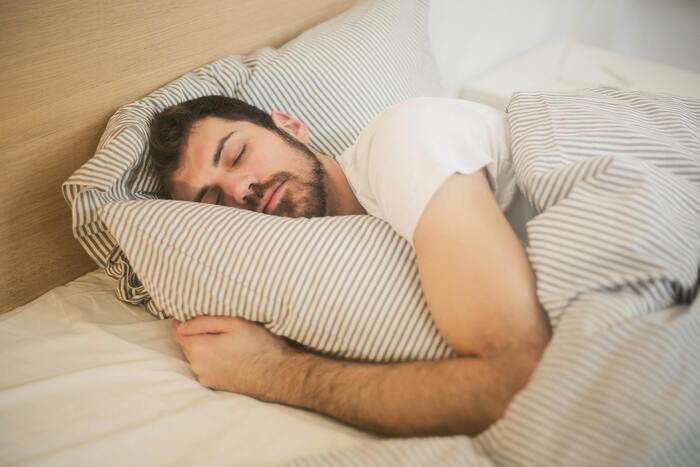Sleep is not simply rest. It’s a biological reset—impacting immune function, metabolism, emotional balance, and…

Sleep Struggles with Time Change? Evidence-Based Tips for Restful Nights
As the clocks shift and the time changes, many of us experience sleep disruptions as our bodies adjust to the new schedule. This can take a toll on both physical and mental well-being, leaving us feeling tired, restless, or out of sync. At our clinic in Limassol, we understand that it may take time for your biological clock to reset, and we’re here to help you navigate this adjustment. Fortunately, there are several natural strategies you can implement to support your sleep while your body adapts. Here are some evidence-based tips to help you sleep better tonight:
- Mind Your Light Exposure
The body’s internal clock, or circadian rhythm, relies heavily on light exposure. Getting morning sunlight helps reset your sleep-wake cycle, promoting better sleep at night. Research has shown that spending 20-30 minutes outside in natural light each morning can significantly improve sleep quality (Journal of Clinical Sleep Medicine, 2023). - Optimize Your Sleep Environment
A cool, dark, and quiet environment can improve sleep quality. Studies suggest that maintaining a bedroom temperature between 60-67°F (15-20°C) helps promote deeper sleep, while reducing exposure to artificial light before bed helps increase melatonin production (Sleep Health Journal, 2022). - Incorporate Relaxation Techniques
Techniques like deep breathing, meditation, or gentle yoga can lower stress and promote relaxation before bed. Evidence from the Journal of Psychosomatic Research (2023) indicates that mindfulness-based interventions can lead to better sleep quality, especially in individuals dealing with anxiety or depression. - Herbal Supplements for Sleep
Natural supplements can be a helpful addition to your bedtime routine. Valerian root has been shown to reduce the time it takes to fall asleep and improve sleep quality. A recent meta-analysis in Frontiers in Pharmacology (2023) supports its effectiveness in sleep disorders. Chamomile is another popular option, known for its calming effects. Studies have found that chamomile tea can reduce insomnia symptoms, particularly in individuals with anxiety (Frontiers in Neurology, 2022). Other supplements like magnesium and L-theanine (an amino acid found in tea) have also been shown to support better sleep by reducing muscle tension and promoting relaxation (Nutritional Neuroscience, 2023). - Melatonin: A Natural Sleep Aid
Melatonin, a hormone produced by the pineal gland, plays a crucial role in regulating the sleep-wake cycle. Research shows that melatonin supplements can be effective for individuals struggling with jet lag, shift work, or general insomnia (Journal of Sleep Research, 2023). However, it’s important to use melatonin under the guidance of a healthcare professional, as its use needs to be timed appropriately for maximum benefit. - The Role of Antihistamines in Sleep
While antihistamines like diphenhydramine (found in medications such as Benadryl) are commonly used for their sedative effects, they are not ideal for long-term sleep management. Although they may help you fall asleep quickly, antihistamines can impair sleep quality by reducing REM sleep, which is crucial for cognitive function and emotional health. Research in Sleep Medicine Clinics (2023) suggests that using antihistamines regularly for sleep can lead to tolerance and increased side effects, making them less effective over time. - Exercise: Boost Sleep with Movement
Regular exercise is a proven way to enhance sleep quality. Aerobic exercises like walking, swimming, or cycling have been shown to improve sleep by reducing anxiety and promoting deeper sleep stages. Studies published in Sleep Medicine Reviews (2022) suggest that moderate-intensity exercise, particularly earlier in the day, can help regulate circadian rhythms and reduce insomnia symptoms. Strength training is also beneficial, as it helps to relieve muscle tension and promote relaxation in the evening. However, it’s best to avoid vigorous exercise right before bedtime, as it can increase adrenaline levels and make it harder to fall asleep. - Types of Exercise to Improve Sleep
- Aerobic Exercise: Walking, jogging, cycling, or swimming can help improve sleep by enhancing mood and reducing stress (Journal of Clinical Sleep Medicine, 2023).
- Yoga and Tai Chi: These forms of gentle exercise focus on deep breathing, relaxation, and stretching, which are excellent for improving sleep, particularly in people with high levels of stress or anxiety (Psychology and Health, 2023).
- Strength Training: Lifting weights or resistance exercises can also promote restful sleep by enhancing physical relaxation and reducing nighttime waking (Sports Medicine, 2022).
- Meditation for Better Sleep
Meditation has a profound effect on improving sleep quality, especially for those struggling with stress or racing thoughts. Mindfulness meditation, focusing on deep breathing and body awareness, helps activate the parasympathetic nervous system, which promotes relaxation. A recent study published in JAMA Internal Medicine (2023) found that mindfulness meditation improved sleep quality and reduced the time it takes to fall asleep, particularly in people with insomnia or chronic stress. Additionally, guided meditation apps and techniques like progressive muscle relaxation can further help quiet the mind and ease into a peaceful sleep. - Mild, Non-Addictive Medications for Sleep
For individuals who have difficulty with sleep despite natural interventions, mild, non-addictive psychiatric medications may provide helpful support. Options like low-dose trazodone and low-dose mirtazapine can improve sleep without the addictive potential associated with other sedatives. These medications are particularly beneficial for those experiencing anxiety or depression-related sleep disturbances. Doxepin, a low-dose tricyclic antidepressant, has also been shown to help improve sleep without dependence or tolerance over time. It’s essential to consult with a healthcare provider to determine the most appropriate treatment option for your specific needs (Psychiatry Research, 2023). - Consistent Sleep Schedule
Going to bed and waking up at the same time every day strengthens your circadian rhythm. Studies consistently show that consistency in sleep patterns leads to improved sleep quality and better overall mental health (Sleep Medicine Reviews, 2022). - Limit Caffeine and Alcohol
Both caffeine and alcohol disrupt your sleep patterns, despite alcohol’s initial sedative effect. Research published in Sleep Medicine Clinics (2023) emphasizes avoiding caffeine at least 6 hours before bedtime and limiting alcohol consumption to improve sleep.
Takeaway: Sleep is essential for mental clarity, emotional regulation, and physical health. Try these natural strategies and consider mild, non-addictive medications if needed to improve your sleep tonight and wake up feeling rejuvenated.
Sources:
- Journal of Clinical Sleep Medicine, “Light exposure and sleep,” January 2023
- Sleep Health Journal, “Optimal sleeping environments,” November 2022
- Journal of Psychosomatic Research, “Mindfulness and sleep,” February 2023
- Frontiers in Pharmacology, “Valerian root for sleep disorders,” April 2023
- Frontiers in Neurology, “Chamomile and sleep,” December 2022
- Nutritional Neuroscience, “Magnesium and L-theanine for better sleep,” March 2023
- Journal of Sleep Research, “Melatonin and sleep disorders,” January 2023
- Sleep Medicine Clinics, “Caffeine and alcohol effects on sleep,” March 2023
- Sleep Medicine Reviews, “Exercise and sleep quality,” December 2022
- Psychology and Health, “Yoga and Tai Chi for sleep improvement,” February 2023
- Sports Medicine, “Strength training and sleep,” October 2022
- JAMA Internal Medicine, “Mindfulness meditation for better sleep,” January 2023
- Psychiatry Research, “Mild psychiatric medications for sleep,” February 2023
#NaturalSleep #SleepWell #SleepTips #MentalHealth #FunctionalPsychiatry #Limassol #LuxuryClinic #HealthySleep #EvidenceBasedWellness #RelaxationTechniques #SleepScience #BetterSleep #SleepHygiene #Mindfulness #YogaForSleep #ExerciseForSleep #HerbalSupplements #Melatonin #MeditationForSleep #SleepMatters #WellnessJourney #HealthyMindHealthyBody #NonAddictiveMedications #SleepSupport #MildPsychiatricMedications


